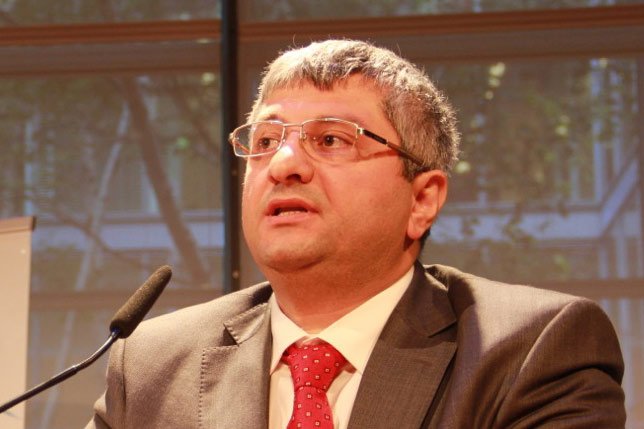Sacred, Secular, Twin Tolerations and the Hizmet Movement

Date posted: November 22, 2012
Dr. Ihsan Yilmaz
For me, the month of November is a month of conferences that I have to both endure but also enjoy. From New Orleans, I flew to Lahore to present a paper at another international conference titled “Ideal Human and Ideal Society in the Thoughts of M. Fethullah Gülen.” Scholars from many parts of the world presented their papers on the topic.
Several papers focus on the Hizmet movement’s (aka Gulen movement) activities in the Muslim world such as Pakistan, Indonesia, Malaysia and Egypt. My paper’s title is “Sacred, Secular, Twin Tolerations and the Hizmet.” It elaborates on Gülen’s society-centric understanding of Islam as opposed to the state-centric approaches of both Islamists and Kemalists.
Until the late 1970s and early 1980s, a relatively widespread consensus had existed in the sociology of religion discipline over the privatization of religion. Some scholars such as Jose Casanova have argued that during the course of the last few decades, a process of “de-privatization” of religion has taken place in the world and that institutional differentiation does not necessarily result in the marginalization and privatization of religion.
Jürgen Habermas underlines that “religious communities and movements provide arguments for public debates on crucial morally loaded issues and handle tasks of political socialization by informing their members and encouraging them to take part in the political process.” He then says that citizens must agree “that only secular reasons count beyond the institutional threshold that divides the informal public sphere from parliaments, courts, ministries and administrations.” Religious citizens too can agree to this “institutional translation proviso” without splitting their identity into a public and a private part when they participate in public debates and discourses.
A convergence between Gülen’s idea that passive secularism is compatible with Islam and the Habermasian understanding of religion in the public sphere can be observed. This convergence could even amount to an overlapping consensus, to use John Rawls’ concept. Here, a secularist (Habermas) agrees with an Islamic scholar (Gülen) that religion can be practiced in the public realm, that religious demands can be made in the public sphere and that the state is at equidistance from all religions.
Gülen’s conception of an Islam-friendly democracy is a key to understand his approach to sacred and secular relations. Gülen does not see a contradiction between Islam and democracy and says that Islam establishes fundamental principles that orient a government’s general character, leaving it up to the people to choose the type and form of government according to time and circumstances. With regard to state-society-religion issues, he has argued unlike the Islamists that passive Anglo-Saxon secularism that guarantees human rights and freedoms, including freedom of religion, could provide a framework for Muslims to practice their religion comfortably while other religious minorities also benefit from human rights. He has highlighted that Islam does not need a state to survive and that civil society or the civilian realm in liberal-democratic settings is sufficient for its individual and social practice.
This understanding of “Islamic secularism” or “twin tolerations” resonates with the Habermasian “religion in the public sphere” philosophy, which argues that the faithful can have demands based on religion in the public sphere and that in the final analysis it is the legislators’ task to translate these demands into a secular language and enact them accordingly.
Source: Today’s Zaman November 21, 2012
Tags: Fethullah Gulen | Hizmet (Gulen) movement |























